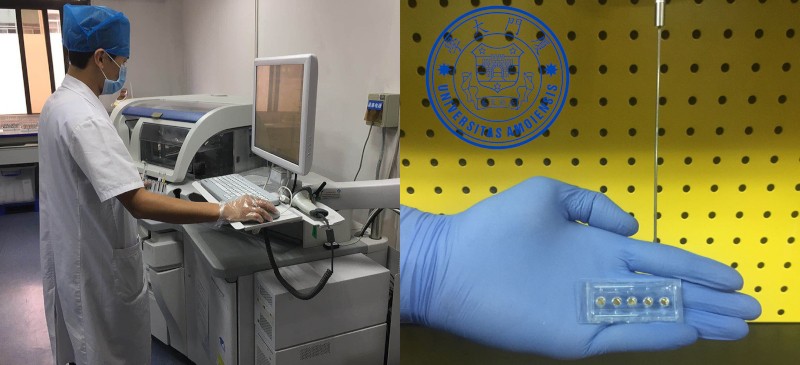Novel portable biosensor for rapid detection of cancer
In the new era of mobile healthcare and bedside testing, the demand for portable, cost-effective and fast-working analytical devices for cancer detection is growing. In this context, a group of Chinese researchers has now presented a newly developed biosensor, which showed promising results in the first clinical tests.
Cancer is a growing public health problem claiming millions of lives worldwide every year. Early detection of the disease is crucial as it can greatly improve the outcome. One important diagnostic tool is to screen for abnormal levels of specific proteins in the blood. These so-called tumor markers play a significant role in the detection and monitoring of cancer. The amount of tumor markers in the blood reflects not only the stage of the disease but also the effectiveness of treatment.
Currently, the detection of tumor markers relies on large machines that are expensive and usually located in central hospitals. This inflexibility can cause difficulties for patients, especially when they live in remote places or when an immediate clinical decision is needed. As a result, the demand for a portable, efficient and low-cost diagnostic tool has been growing.
Biosensors – a bright future in mobile healthcare?
In a recently published study from the journal Nanophotonics, a research group, led by Dr. Jinfeng Zhu from Xiamen University in China, presents a new method for the portable detection of tumor markers, which is based on nanoscale optics and the development of a novel biosensor chip.

According to the researchers, the chip’s metallic nanostructures are highly sensitive to different concentrations of various cancer-related proteins. Furthermore, both the sensing chip and the optical configuration are compact, cost-effective and quick to detect tumor markers. By analyzing the reflected light spectra, it is possible to examine multiple samples at the same time, and the diagnosis of one person does not take longer than 30 minutes. “This work combines nanotechnology, microfluidics, advanced optics and label-free sensing, and it points out a bright way for high-throughput and multi-marker biosensing with low costs”, said Dr. Zhu.
The results of clinical tests into how well the chips can detect carcinoembryonic antigen (CEA), one of the most widely used tumor markers, in human serum samples, show a good agreement with conventional medical examinations. The chips were able to detect CEA concentrations of less than five nanograms per milliliter, which is well below the diagnostic threshold.
“The study provides promising opportunities for affordable, compact medical devices and systems for the portable detection of tumor markers”, the Chinese scientists stress. “It will be of great importance for the development of point-of-care testing and mobile healthcare.”
Read the original article here: